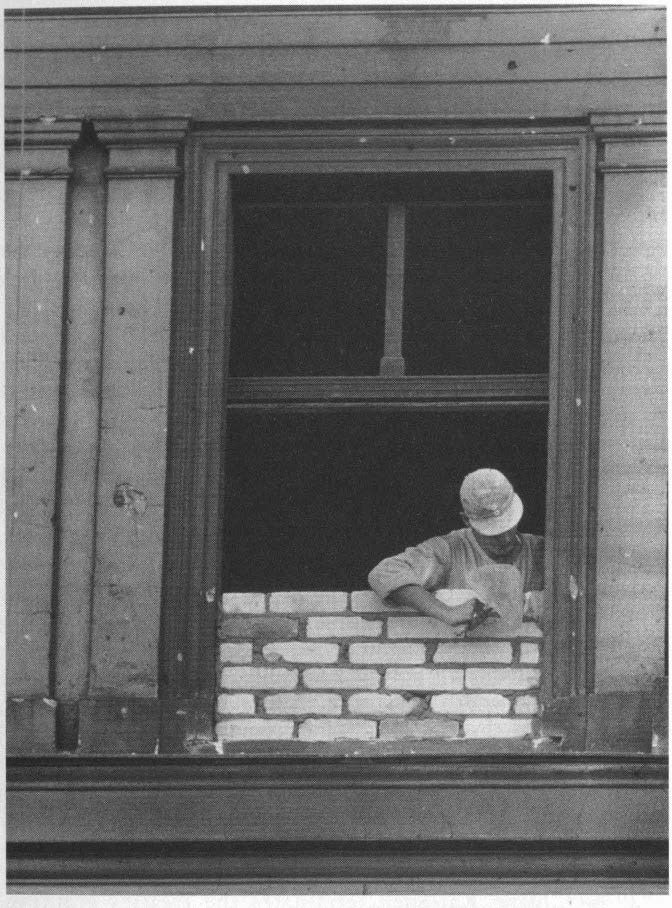Uniting Men - Jean Monnet - Chronology
Chronology
August 1914 — Outbreak of World War I.
September 2, 1914 —The German army has reached as far as 30 miles from the French capital. The French government abandons Paris and withdraws to Bordeaux.
September 6 to 9, 1914 —Battle of the Marne. The German army is stopped by the French.
November 11, 1918—Armistice ending World War I.
June 28, 1919 — The Versailles Peace treaty imposes heavy territorial, military and economic sanctions on the defeated nations. Germany has to pay large sums ($32 billion) to the European victors. As these victors themselves owe big amounts to the USA, they are dependent on these reparations.
1921 —First session of the League of Nations in Geneva.
1925 — Chiang Kai-Shek succeeds Sun Yat-Sen to the leadership of the Kuomintang and leads the Nationalist government in Nanjing.
1929 — Chiang Kai-Shek terminates the treaties granting extraterritoriality to Western nations. Railroad construction is undertaken.
October 23, 1929 — Collapse of the American stock market. November 9, 1932 — Roosevelt elected president of the

1961. Berlin: All the windows on the Western side of Berlin are bricked up. "As for the wall that separates men, Jean Monnet had measured its thickness and its resistance, and having done so he could not rest until he had understood how he could open a breach into it."
United States. Beginning of the New Deal.
January 30, 1933 — The National Socialists come to power in Germany. The first measures against the Jews are taken shortly after.
September 29, 1938 — The French and British Prime Ministers, Daladier and Chamberlain meet Hitler in Munich and avert war by abandoning Czechoslovakia to its fate.
March 15, 1939 — German troops enter Czechoslovakia.
September 1, 1939 — Invasion of Poland.
September 3, 1939 — England and France declare war on Germany. Beginning of World War II.
May 10, 1940 —Hitler launches its attack on the Allies. Netherlands, Belgium and France collapse.
June 18, 1940 — From London, de Gaulle speaks to his countrymen and adjures them to rally round him.
June 22, 1940 — Surrender of the French.
March 11, 1941 — Lend-Lease Act: this famous law gives President Franklin Roosevelt the authority to aid Great Britain with ships and other war materials in its war with Nazi Germany.
December 7, 1941 —Japanese attack on the American forces in Pearl Harbor.
November 8, 1942 — Allies' landing in North Africa.
May 30, 1943 — De Gaulle's arrival in Algiers.
June 6, 1944 — Allies' landing in Normandy.
May 8, 1945 — Victory day in Europe.
August 15, 1945—End of World War II.
January 1946 — De Gaulle resigns as President of the Provisional Government.
March 5, 1946 — In a speech, Churchill speaks for the first time of an "iron curtain".
June 5, 1947 - George Marshall proposes a plan "to assist in the return of normal economic health" of Europe,. USSR refuses to be included in it.
June 24, 1948 — Stalin imposes a blockade on the western sectors of Berlin. The Western powers supply West Berlin
through air.
May 8, 1949 — A West German parliamentary council adopts a constitution for the Federal Republic of Germany with Konrad Adenauer as its first chancellor.
May 9, 1950 —The "Schuman plan" is made public in Paris.
June 25, 1950 — North Korean forces cross the 38th parallel to "liberate" South Korea.
April 18, 1951 — Signature of the treaty creating the European Community of Steel and Coal. .
1954 —Refusal by the French parliament to ratify the treaty on the European Defence Community.
25 March, 1957 — Treaty of Rome creating Euratom and the European economic community.
1958 — De Gaulle, President of France.
1961-1962 — Presentation and failure of projects of treaty on European political cooperation.
1973 — Denmark, Great Britain and Ireland join Europe.
1979 — First election of the European parliament by direct universal franchise.
1981 — Greece joins Europe.
1992 — Signature of the Maastricht Treaty which led to the creation of the European Union. It was the result of separate rate negociations on monetary union
and political union.
1995 — Austria, Finland and Sweden join Europe
2002 —The Euro becomes the currency for 11 countries of the European Union.
2004, May 1st — Ten new countries join the European Union (The Czech Republic, Estonia, Cyprus, Latvia, Lithuania, Hungary, Malta, Poland, Slovenia, Slovakie)
2004, October 29 — The text of a Constitution for Europe is signed.
2005 — Through a referendum, the French and then the Dutch refuse to ratify the text of the Constitution for Europe.
Related Books
- Alexander the Great
- Arguments for The Existence of God
- But it is done
- Catherine The Great
- Danton
- Episodes from Raghuvamsham of Kalidasa
- Gods and The World
- Homer and The Iliad - Sri Aurobindo and Ilion
- Indian Institute of Teacher Education
- Joan of Arc
- Lenin
- Leonardo Da Vinci
- Lincoln Idealist and Pragmatist
- Marie Sklodowska Curie
- Mystery and Excellence on The Human Body
- Nachiketas
- Nala and Damayanti
- Napoleon
- Parvati's Tapasya
- Science and Spirituality
- Socrates
- Sri Krishna in Brindavan
- Sri Rama
- Svapnavasavadattam
- Taittiriya Upanishad
- The Aim of Life
- The Crucifixion
- The Good Teacher and The Good Pupil
- The Power of Love
- The Siege of Troy
- Uniting Men - Jean Monnet